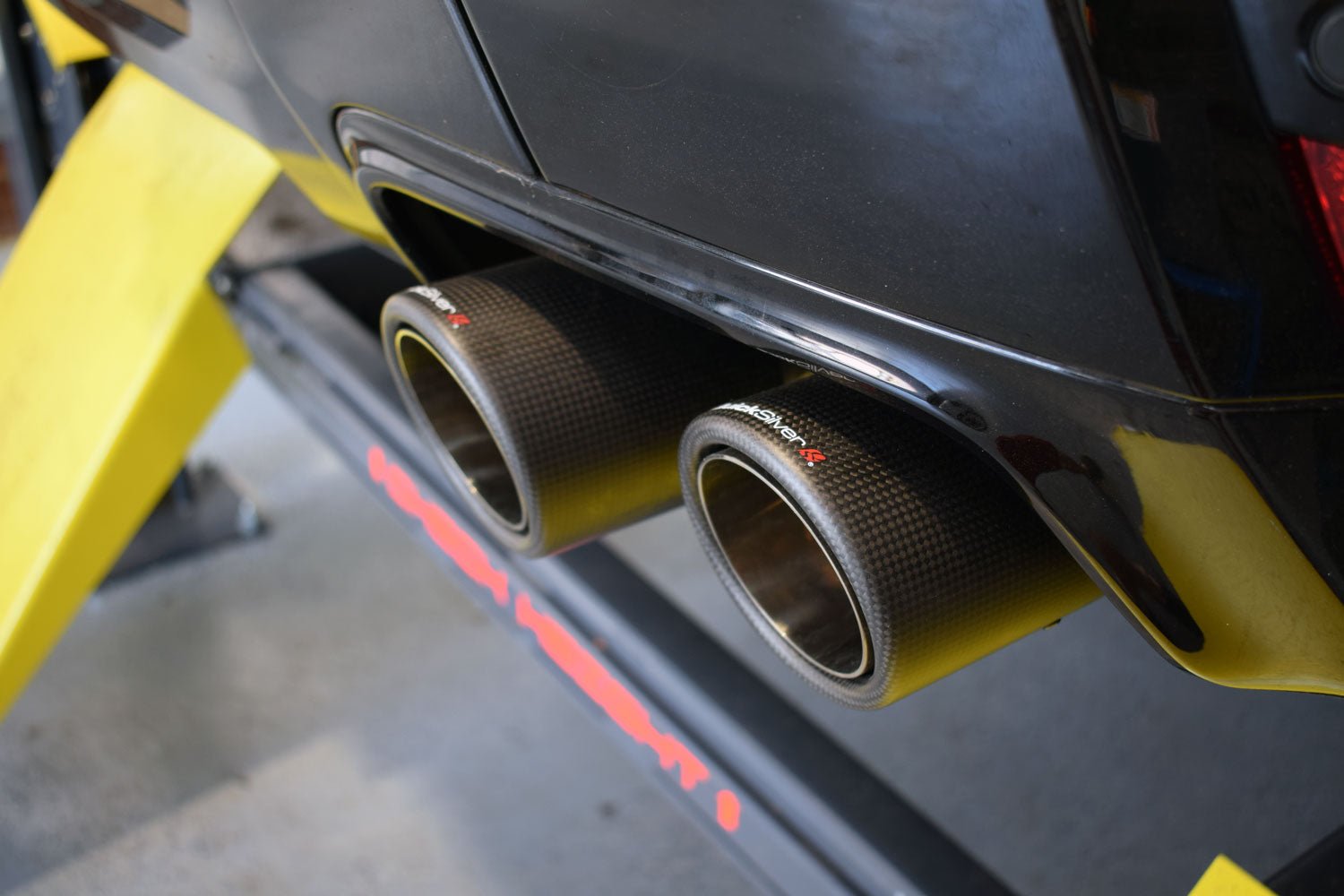The Role of Regular Maintenance in Extending the Life of Your Exhaust System
Your vehicle’s exhaust system plays a crucial role in maintaining performance and ensuring a clean environment. But have you ever wondered how regular maintenance can extend the life of your exhaust system? It’s more important than you might think. Engaging in routine check-ups and repairs not only enhances the efficiency of your car but also saves you money over time. Let’s explore how regular maintenance can significantly benefit your exhaust system.
First, understanding what the exhaust system does is essential. This system is responsible for directing harmful gases away from the engine and filtering them before they enter the atmosphere. Over time, wear and tear can lead to leaks and blockages, which can affect performance. Regular maintenance helps identify these issues early, ensuring the exhaust system operates correctly and efficiently.
One of the simplest yet most effective maintenance tasks you can perform is checking for leaks. Exhaust leaks can drastically reduce engine performance and fuel efficiency. You can often spot problems visually or by listening for unusual sounds while your engine runs. If you hear a hissing or popping noise, it’s likely an exhaust leak. Fixing these leaks quickly helps maintain your system’s integrity. Consider the following tips for leak detection:
- Listen carefully for unusual sounds when your engine is running.
- Look for rust or discoloration around the exhaust pipes.
- Check connections for any visible wear.
Another critical aspect of maintaining your exhaust system is regular cleaning. Over time, carbon deposits can build up, affecting performance and fuel efficiency. A simple cleaning can often restore some lost power. It’s also beneficial to remove any debris that might cause blockages. You can consult your mechanic about the best cleaning methods for your specific vehicle.
Catalytic converters are also vital components of your exhaust system. They help reduce toxic emissions. However, they can become clogged over time, leading to decreased performance. Routine checks of your catalytic converter can help you catch and address issues before they escalate into significant problems. Signs that your catalytic converter might need attention include:
- Reduced engine power.
- Strange smells coming from the exhaust.
- Check Engine light illuminating on your dashboard.
Furthermore, the exhaust system is prone to rust, especially in areas with harsh weather conditions or road salt. Regular inspections can help you catch early stages of corrosion. Addressing rust with protective coatings can go a long way in extending the life of your system. If you notice rust formation, it may be wise to consult a professional who can provide the best solutions.
Don’t forget about the mounting hardware of your exhaust system. Over time, bolts and hangers can become loose or damaged, leading to misalignments. A misaligned exhaust can lead to further damage if not addressed. Regular checks of these components can help prevent more significant issues. Properly secured mounts ensure a well-functioning exhaust system. Make sure to check:
- Mounting bolts for tightness and integrity.
- Hangers for wear and tear.
- Connections for any signs of loosening.
It’s important to remember that your driving habits can also affect the longevity of your exhaust system. For instance, aggressive driving can lead to increased wear. If you frequently accelerate quickly or drive over rough terrain, consider adjusting your driving style. Gentle acceleration can help reduce the strain on your exhaust components.
Keeping an eye on your vehicle’s overall performance is key. If you notice a drop in fuel efficiency or unusual noises, don’t ignore these signs. Early intervention can save you from costly repairs and keep your exhaust system functioning correctly.
Regular maintenance is vital for extending the life of your exhaust system. By monitoring for leaks, scheduling cleaning sessions, checking your catalytic converter, inspecting for rust, tightening mounting hardware, and investing in good driving habits, you can ensure your exhaust system stays in great shape. Being proactive can help you save money and keep your vehicle running smoothly for years to come.
Common Signs of Exhaust System Wear and How Maintenance Can Help
Your vehicle’s exhaust system plays a vital role in maintaining its performance and keeping the environment clean. However, like any other part of your car, it can wear down over time. Recognizing the common signs of exhaust system wear can save you from costly repairs and ensure your car runs smoothly. Regular maintenance is key to extending the life of your exhaust system.
Common Signs of Exhaust System Wear
Being aware of the indicators of exhaust system wear can help you take timely action. Here are some signs to watch for:
- Loud Noises: A loud or rumbling noise from the exhaust can signal a leak or damage within the system. You might hear sounds that resemble a growl or popping, especially when accelerating.
- Vibrations: If you feel vibrations in your vehicle, it can indicate an exhaust issue. This could be due to loose parts or an exhaust leak.
- Decreased Fuel Efficiency: If you notice that you’re filling up more frequently, your exhaust system could be hindering your vehicle’s performance.
- Strong Exhaust Fumes: A strong smell of exhaust fumes inside your vehicle can be a sign of leaks. This poses health risks and must be checked immediately.
- Check Engine Light: If your check engine light comes on, it might be related to the exhaust system. Getting diagnostics can reveal if there’s a problem with your catalytic converter or oxygen sensors.
If you observe any of these signs, it’s essential to address them quickly. They often signal an underlying problem that could worsen if ignored. Regular maintenance can prevent these issues from escalating.
How Maintenance Can Help
Routine maintenance is not just a task; it’s an effective way to keep your exhaust system in top-notch condition. Here’s how it can help:
- Regular Inspections: Taking your vehicle in for regular inspections allows professionals to check for any wear and tear. They will look for cracks, rust, or loose parts that can lead to bigger issues.
- Cleaning: Over time, your exhaust system can accumulate carbon deposits and dirt. Regular cleaning helps maintain airflow, optimizing performance and improving fuel efficiency.
- Replacing Damaged Parts: If a professional finds a damaged part during an inspection, replacing it immediately can prevent more significant problems down the line. Continuously using a vehicle with a failing exhaust can strain the entire system.
- Managing Rust: The exhaust system is exposed to moisture, making it susceptible to rust. Keeping it clean can help reduce rust formation, while applying appropriate rust inhibitors can extend its life.
- Timely Repairs: If you notice any of the signs of wear mentioned earlier, getting timely repairs can make a substantial difference. This includes patching leaks or replacing mufflers to keep everything running smoothly.
DIY Maintenance Tips
If you’re keen on performing some maintenance yourself, consider these tips to keep your exhaust system healthy:
- Visual Inspections: Regularly inspect your exhaust system for any visible signs of damage, such as rust or loose joints. This can help you catch problems early.
- Keep it Clean: You can clean the exterior of the exhaust pipe with soapy water to remove soot and dirt. This helps prevent corrosion.
- Listen for Noises: Pay attention to your vehicle sounds while driving. If you notice any unusual noises, investigate them, as they may indicate a problem.
Remember, every car is different, and your vehicle’s manual should offer specific guidelines for maintaining its exhaust system. Staying informed will help you safeguard your investment.
Your exhaust system requires attention just like any other part of your car. By being vigilant regarding the signs of wear and investing in regular maintenance, you can prolong its life and keep your vehicle performing optimally. If you’re unsure about conducting repairs or inspections, consult a qualified mechanic. They can provide expert insights and ensure your exhaust system remains in excellent condition.
Essential Maintenance Tips for Keeping Your Exhaust System in Top Shape
Your vehicle’s exhaust system plays a crucial role in maintaining performance and efficiency. Regular maintenance can extend its life and ensure your ride remains smooth. Here are some essential tips to keep your exhaust system functioning at its best.
Inspect Regularly
One of the best practices is to frequently inspect your exhaust system. Look for signs of damage such as rust, dents, or loose connections. If you notice any abnormalities, it could be a warning signal. Regular inspections can prevent minor issues from transforming into costly repairs.
Check for Leaks
Leaks in the exhaust system can harm engine performance and lead to excessive emissions. Here’s how to check for leaks:
- Listen: Pay attention to unusual noises such as hissing or popping sounds while the engine is running.
- Feel: Run your hand along the exhaust pipes and joints while the engine is warm. You may feel escaping air.
- Look: Check for black soot around joints or holes, as this can indicate a leak.
Keep it Clean
Cleaning your exhaust system is equally important. Corrosion and buildup can result in decreased efficiency. To keep your exhaust clean, you can:
- Wash: Regularly wash the exterior of your exhaust pipe, especially if you live in an area with heavy salt exposure.
- Remove: Clear any dirt, debris, or obstructions that may have collected in the system.
Monitor the Muffler
The muffler is vital to the proper function of the exhaust system. A faulty muffler can lead to noisy operation and reduced performance. Monitor your muffler by:
- Listening: If you hear a loud rumble, it could signal an issue.
- Checking: Inspect it for rust, holes, or obvious damage during your regular vehicle inspections.
Use Quality Fuel
What you put into your vehicle matters. Using quality fuel reduces the chances of carbon buildup in the exhaust system. Opt for fuels that meet manufacturer specifications. Additionally, consider using fuel additives periodically to help clear the carbon deposits.
Schedule Complete Exhaust System Inspections
While you can do regular checks yourself, having a professional mechanic perform thorough inspections is wise. Schedule these inspections at least once a year, or every time you get an oil change. Professionals can spot problems that might not be visible to the untrained eye and take preventive measures.
Replace Worn Parts Promptly
If you notice any parts of the exhaust system showing signs of wear, such as rust or damage, replace them promptly. Components like pipes, joints, and gaskets can deteriorate over time. Addressing worn parts early can help maintain the integrity of the entire system.
Temperature Monitoring
Maintaining an optimal engine temperature plays a big role in exhaust system health. Overheating can cause parts to warp and wear out prematurely. Ensure your cooling system works correctly, and always pay attention to temperature gauges in your vehicle.
Drive Sensibly
Your driving habits can significantly impact the longevity of your exhaust system. Aggressive driving can lead to sudden shifts in temperature, causing damage. Smooth acceleration and deceleration can help minimize strain on the exhaust components.
Pay Attention to Engine Warning Lights
The check engine light could indicate problems in the exhaust system. Don’t ignore it! Promptly investigate the cause, as ignoring it may lead to significant issues down the line.
By following these essential maintenance tips, you can help ensure your exhaust system remains in top shape for years to come. Taking proactive steps to monitor and care for this critical component of your vehicle can save you money on repairs and keep your ride enjoyable and efficient.
The Connection Between Exhaust System Health and Vehicle Performance
The health of your vehicle’s exhaust system plays a critical role in its overall performance. When maintained properly, it offers benefits that enhance your driving experience. Understanding how the exhaust system functions can help you appreciate why its maintenance is so vital.
Your vehicle’s exhaust system is designed to channel harmful gases away from the engine and minimize pollution. These gases can include carbon monoxide, hydrocarbons, and nitrogen oxides. A well-functioning exhaust system ensures that these gases are expelled efficiently, preventing them from entering the cabin or affecting engine performance. Similarly, an efficient exhaust system contributes to improved gas mileage, better acceleration, and reduced vehicle emissions.
The Components of an Exhaust System
- Exhaust Manifold: Collects exhaust gases from the engine cylinders and directs them into the exhaust pipes.
- Catalytic Converter: Reduces harmful emissions by transforming toxic gases into less harmful ones.
- Oxygen Sensors: Monitor the amount of oxygen in the exhaust gases to help adjust the air-fuel mixture for optimal combustion.
- Muffler: Reduces noise produced by the exhaust gases as they exit the vehicle.
- Exhaust Pipes: Channels the exhaust gases away from the engine and out of the vehicle.
Each component plays a unique role in ensuring that your vehicle performs at its best. A failure in one part can lead to a domino effect, negatively impacting the entire system. For instance, a clogged catalytic converter can restrict exhaust flow, which can reduce engine power and fuel efficiency significantly.
Importance of Regular Maintenance
Regular maintenance greatly enhances the lifespan of your exhaust system and ensures optimal vehicle performance. Here are some key benefits:
- Prevention of Rust and Corrosion: Regular inspections can catch early signs of rust or leaks, allowing for timely repairs before major damage occurs.
- Improved Fuel Efficiency: A clean exhaust system allows for better airflow, helping your engine to run efficiently and consume less fuel.
- Enhanced Engine Performance: When the exhaust gases flow freely, the engine can breathe better, resulting in increased power output.
It’s easy to ignore the exhaust system because many parts are hidden beneath the vehicle. However, neglecting regular checks can lead to costly repairs in the future. A small, minor issue can escalate into a larger problem that affects not just the exhaust system but also the engine and potentially other parts of the vehicle.
Signs of Exhaust System Trouble
If you’re unsure whether your exhaust system is working correctly, watch for these warning signs:
- Increased Engine Noise: A loud engine or strange noises may indicate a leak in the exhaust system.
- Decreased Fuel Efficiency: If you’ve noticed an uptick in fuel consumption, the exhaust system may be partially blocked.
- Strange Smells: The presence of strong exhaust odors inside the vehicle could indicate a leak, which is a serious safety issue.
- Check Engine Light: If this light comes on, it may be due to an issue with the exhaust system or related components.
Addressing these signs promptly can help prevent more significant issues. You can often extend the life of the exhaust system by getting it checked during regular vehicle maintenance services.
Maintaining the exhaust system is essential for ensuring your vehicle operates efficiently and safely. Understanding its components and the importance of regular check-ups allows you to connect the dots between exhaust health and vehicle performance. Schedule routine inspections and act quickly on any warning signs to keep your vehicle running smoothly for years to come.
Cost-Benefit Analysis: Investing in Exhaust System Maintenance vs. Replacement
The importance of a well-functioning exhaust system in your vehicle cannot be overstated. Regular maintenance can enhance your car’s performance while extending the life of the exhaust components. However, when it comes to maintenance versus replacement, understanding the cost-benefit analysis can be quite enlightening.
First, let’s explore what regular maintenance involves. This can include:
- Routine inspections for rust or damage.
- Checking and tightening exhaust system hangers and brackets.
- Looking for leaks in pipes and joints.
- Replacing worn-out gaskets and seals.
- Cleaning components to prevent clogging.
These simple tasks not only ensure better functioning but also save you money in the long run. Spending a little time and money on maintenance can prevent significant issues from developing. You might be wondering how exactly does this work?
Imagine your exhaust system as a network of pipes and tubes. If one part starts to wear down or fail, it can create a domino effect. Leaks can lead to engine inefficiencies, causing your vehicle to burn more fuel and ultimately affecting performance. By catching these issues early on through regular maintenance, you can avoid the high costs associated with full system replacement.
On the flip side, let’s look at the costs associated with exhaust system replacement. A full replacement can be a significant investment, often ranging from several hundred to thousands of dollars, depending on your vehicle and parts required. This does not include labor costs, which can add up as well. Here’s why careful consideration is crucial:
- Parts: Replacing the entire exhaust system means you’ll need to invest in new components such as the catalytic converter, mufflers, and pipes.
- Labor: Installation can take several hours, involving specialized labor that adds to the overall expense.
- Timing: Waiting until there’s a drastic failure forces you into a rushed decision, often leading to poor choices instead of informed ones.
Now, let’s weigh these points against routine maintenance costs. Generally, routine maintenance tasks are much cheaper than complete replacements. The investment in regular checks often looks like this:
- Inspection fees: Typically low, many shops offer free inspections or charge a minimal fee.
- Minor repairs: Fixing leaks or replacing gaskets can be managed for under a couple of hundred dollars.
- Time: Regular maintenance often takes just an hour or two, compared to the days of downtime you face during a full replacement.
Ultimately, the decision to maintain or replace hinges on the condition of your exhaust system. If well-maintained, you can expect an exhaust system to last anywhere from 10 to 15 years, dependent on driving conditions and practices. But if you neglect maintenance, you might find yourself needing replacement much sooner than expected.
Furthermore, maintaining your exhaust system can contribute positively to the environment. A well-functioning exhaust minimizes harmful emissions that impact air quality. When you invest in regular maintenance, not only are you saving money but also supporting a cleaner ecosystem.
It’s also worth noting that many manufacturers recommend specific intervals for exhaust system inspections and maintenance. Staying tuned to your vehicle’s service schedule can help you avoid unnecessary costs. Check your owner’s manual or consult with a trusted mechanic to ensure you’re on track.
Investing in regular maintenance of your exhaust system is generally much more cost-effective compared to waiting for a full system replacement. By addressing minor issues proactively, you extend the life of your exhaust components and avoid unexpected expenses. Your wallet and your vehicle will thank you in the long run.
Conclusion
Regular maintenance plays a critical role in extending the life of your exhaust system, ensuring that your vehicle runs smoothly and efficiently. By recognizing the common signs of wear, such as unusual noises, vibrations, or decreased fuel efficiency, you can address issues before they escalate. This proactive approach not only protects your exhaust system but also enhances your overall driving experience.
Implementing essential maintenance tips—like regular inspections, prompt repairs, and timely replacements—can significantly impact the longevity of your exhaust system. Simple practices, such as checking for rust and ensuring connections are secure, can prevent costly breakdowns. Remember, a well-functioning exhaust system is crucial for optimal vehicle performance, affecting not just acceleration and handling, but also emissions control.
Furthermore, investing in maintenance can lead to substantial savings down the line. The cost associated with routine care is often far less than the expense of a full exhaust system replacement. By prioritizing maintenance, you not only protect your investment in your vehicle but also contribute to better environmental outcomes through a reliable emissions system.
Ultimately, the health of your exhaust system is integral to your vehicle’s success. Regular maintenance is not just a chore; it is a smart strategy that keeps your car performing at its best while extending the lifespan of one of its key components.





